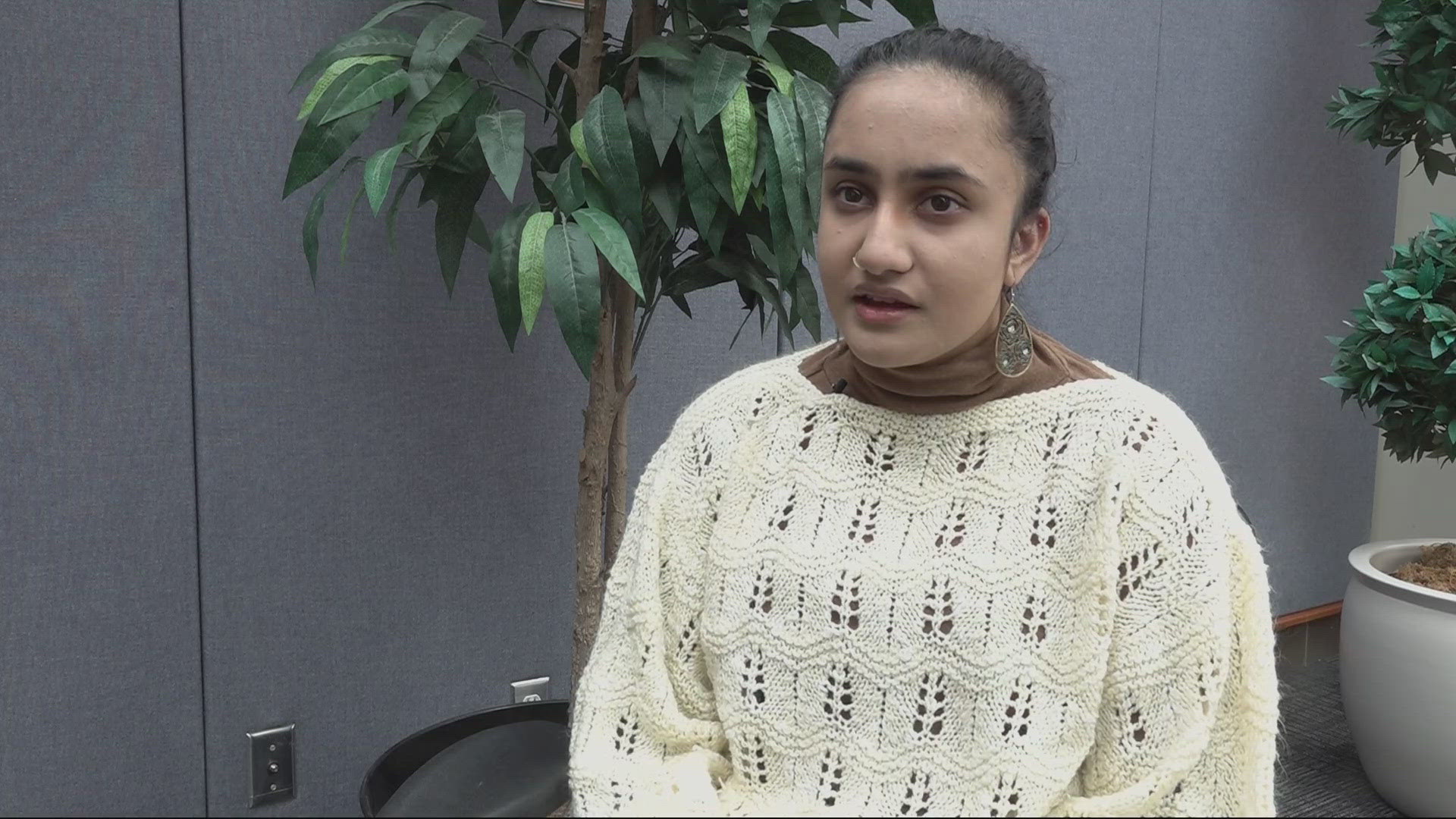PORTLAND, Ore. — New research from the University of Oregon (UO) shows that when teens feel a strong sense of belonging in their community, it can make just as big of an impact on their mental health as medication or therapy.
"I struggled with wanting to disappear but never really wanting to die," said Aditi Khanna, a senior at Westview High School in Beaverton.
She's been battling with anxiety and her mental health since 7th grade.
"I didn't want to have to deal with the day-to-day life stuff. I didn't want to have to deal with issues with my friends," she said. "I didn't want to have to deal with getting out of bed in the morning."
Things started to look up for her when her mom suggested she go to therapy and start taking medication.
"I would just like kind of wallow when things got really bad. I would just let it consume me," said Aditi. "Now, if I'm having a really bad week or I'm dealing with a lot of anxiety. I can like, take some time in myself to be like, ok, I know what I need and I know I need to pull myself out of this."
Now she's pulling others out of the same dark place working at YouthLine, a national teen-to-teen crisis support line.
The Centers for Disease Control and Prevention said 20% of U.S. high schoolers have had serious thoughts about suicide.
Lauren Berny from the University of Oregon analyzed data from a group of almost 300 high risk teens.
She found social connections in schools and in their community lowered the risk of suicide attempts.
"It's not just receiving clinical health treatment — it's also feeling supported," said Berny, a doctoral candidate, at UO College of Education and Prevention Science Institute.
Berny also found strong social connections had the same protective effect for survivors of sexual and physical abuse, or teens with disordered eating. She said schools can help foster protective relationships through peer support groups or mentorship programs.
"You might have to look a little hard and find a group of people you really connect with but it's very likely that they are out there," said Anna Catherine Sgroi who also works for YouthLine.
YouthLine has people ready to help and provide emotional support. If you or a teen you know is struggling you can reach them at 877- 968-8491.

